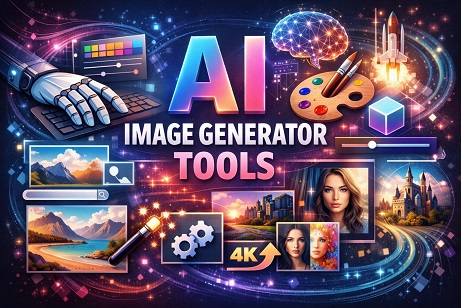Stories you may like
How AI Is Redefining SEO—and Why Buying Traffic Isn’t a Dirty Word
In the ever-churning digital marketplace, search engine optimization (SEO) has long been the bread and butter of online visibility. But with the rise of artificial intelligence, the rules are changing. AI tools are redefining how content is written, structured, and ranked. And that shift is bringing new strategies to the forefront—some controversial, some underutilized. Among them, one idea still raises eyebrows in some circles: buy SEO traffic. Used correctly, it’s not cheating. It’s smart acceleration.
The AI Revolution In SEO
What’s Actually Changing?
AI is not just tinkering around the edges of SEO—it’s reshaping the entire architecture. Tools like ChatGPT, Bard, Claude, and Google’s own AI systems (including AI Overviews) are now:
- Rewriting how users engage with search results
- Generating search summaries that impact CTR (click-through rates)
- Elevating the role of structured data and semantic markup
- Prioritizing natural, human-like language over keyword stuffing
Algorithms Meet Intelligence
Google’s algorithm updates—think BERT, MUM, and now SGE (Search Generative Experience)—are increasingly reliant on AI to understand context, intent, and nuance. The focus has shifted from exact-match keywords to meaning and user satisfaction.
In short: good content isn’t enough anymore. It has to be the right content, in the right structure, for the right moment.
How Small Businesses Can Leverage AI For SEO
Automate the Mundane
AI tools can handle repetitive tasks such as:
- Keyword research
- Title and meta description generation
- Internal linking suggestions
- Content rewriting or summarization
This frees up marketers and business owners to focus on strategy, branding, and customer relationships.
Analyze Faster
SEO used to rely on slow, manual audits. Today, AI tools can instantly crawl websites, identify broken links, and suggest on-page optimizations based on what’s ranking now—not six months ago.
Personalize at Scale
With AI, personalization isn’t limited to Amazon or Netflix. Even small sites can tailor recommendations, CTAs, or blog content based on user behavior or geolocation.
The Rise Of SEO Platforms—And The Case For Buying Traffic
Platforms like Upseo and other white-label SEO services now offer fully managed solutions. They allow small businesses or even agencies to outsource everything:
- On-page optimization
- Link building
- Local SEO
- Technical audits
- Rank tracking
In the middle of this ecosystem, some vendors also offer the ability to buy SEO traffic. And here’s the controversial truth: when used strategically, it can be more efficient than Google Ads.
Buying traffic may help:
- Test landing pages for conversion
- Boost perceived authority
- Improve engagement metrics
Compared to Google Ads—which can cost $3–$12 per click for competitive keywords—buying SEO traffic can often be cheaper and generate more stable patterns. It’s not a replacement for great content, but a catalyst for visibility.
And it’s important to say it out loud: buying links or traffic isn’t inherently bad. If the sources are real, the traffic is relevant, and the strategy fits your goals, it’s simply another tool in the SEO toolbox.
Ethical Considerations & Common Misconceptions
Isn’t Buying Traffic Manipulative?
Not necessarily. Manipulation implies deception. If your traffic source is authentic (not bots or click farms), you’re not violating trust—you’re amplifying exposure.
What About Google Penalties?
Google penalizes manipulative practices—especially fake engagement or paid links from irrelevant sources. But platforms that focus on real user visits (often from native ads or interest-based content syndication) do not breach guidelines when transparently disclosed.
What’s Different In AI-Powered SEO Strategies?
From Keywords to Questions
AI tools and AI Overviews in search favor content that answers questions naturally:
- Instead of “best marketing software USA,” a smarter prompt is “What is the most affordable marketing tool for startups in the USA in 2025?”
- SEO strategy now includes FAQ blocks, semantic headings, and conversational phrasing.
From Backlinks to Brand Mentions
The web is moving from traditional link authority to entity recognition. AI models are more likely to recognize:
- Brand mentions across forums and social media
- Co-occurrence with other trusted topics
- Structured data showing trust (like reviews, schema, awards)
From Static Pages to Dynamic Answers
Content must now be:
- Continuously updated
- Visually engaging (with media and charts)
- Machine-readable (via schema.org, JSON-LD, and more)
Smart Ways To Integrate AI Into Your Marketing Strategy
- AI Content Planning – Use tools like MarketMuse, Clearscope, or Surfer SEO to identify high-potential gaps.
- AI Copywriting – Use tools like Jasper or Claude for drafting blog intros, emails, or ads.
- Visual AI – Generate hero images with tools like Midjourney or DALL·E.
- AI Chatbots – Install assistants like Chatbase or Tidio to improve engagement and time-on-page.
Real Talk: AI + Buying Traffic = Strategic Power
When paired together, AI and traffic acquisition create a loop:
- AI content gets built and optimized fast.
- Traffic is driven (organically and via purchase).
- Behavioral data informs refinement.
- AI learns what converts and adjusts.
It’s a flywheel. And small businesses—once locked out of premium tools—now have access to this loop.
In the age of AI, buying links or deciding to buy SEO traffic shouldn’t be viewed as shortcuts. If done with transparency and precision, they’re part of a larger marketing symphony—one that can play louder than ads alone.










User's Comments
No comments there.